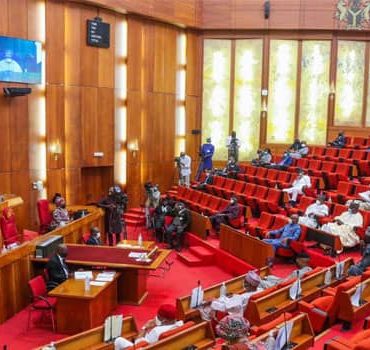Constitution Amendment: NASS Grants Autonomy For Local Governments

The National Assembly on Tuesday granted financial and administrative autonomy to all the local governments across Nigeria.
This was done when the lawmakers voted on 68 Constitution Amendment bills at their plenary. The voting was done electronically.
Both chambers of the National Assembly during voting on the Constitution Amendment voted in favour of Local Government administrative autonomy as a tier of government and guarantee their democratic existence and tenure.
In the House of Representatives, the bill to create a special account through which funds for local governments will be paid directly from the Federation Account had 257 ‘YES’ votes while nine persons voted ‘NO.’
For the local government autonomy, 258 members of the House of representatives voted ‘YES’ while 15 voted ‘NO’.
In the Senate Chamber, Local government financial autonomy had 92 ‘YES’ votes and two ‘NO’ votes.
Also in the Senate Chamber, local government administrative autonomy had 88 ‘YES’ votes, four ‘NO’ votes.
The National Assembly made this vote less than 24 hours after the leadership of the Nigeria Labour Congress (NLC) led a protest to the National Assembly, to demand overwhelming votes in favour of autonomy for the local government and the judiciary.
Meanwhile, lawmakers on Tuesday voted against a bill seeking to provide special seats for women in the National and State Houses of Assembly.
The bill was defeated in the Senate with 58 votes out of 91.
In the House of Representatives 208 out of 290 lawmakers voted against it.
Wife of the Vice President, Mrs Dolapo Osinbajo was present on the floor of the House of Representatives for the vote.
In an interview after the vote, Mrs Osinbajo said the defeated bill was not the end of the agitation for women inclusion in Nigerian politics.
The Minister of Women Affairs, Pauline Tallen, described the vote as a show of shame.
Lawyard is a legal media and services platform that provides enlightenment and access to legal services to members of the public (individuals and businesses) while also availing lawyers of needed information on new trends and resources in various areas of legal practice.













